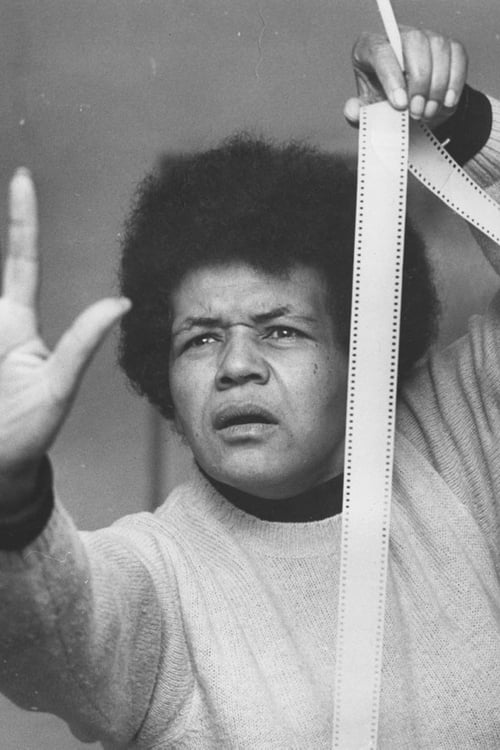
Sarah Maldoror
出生 : 1929-07-19, Condom, France
死亡 : 2020-04-13
略歴
Sarah Maldoror (19 July 1929 − 13 April 2020) was a French filmmaker of French West Indies descent. She is best known for her feature film Sambizanga (1972) on the 1961–1974 war in Angola.
After her studies, Maldoror, worked as an assistant on Gillo Pontecorvo's acclaimed film, The Battle of Algiers (1966). She also worked as an assistant to Algerian director Ahmed Lallem.
Maldoror's short film, Monangambee (1968), was set in Angola, based on a story by Angolan writer José Luandino Vieira. The title of this 17-minute film, Monangambée, refers to the call used by Angolan anti-colonial activists to signal a village meeting. The film was shot with amateur actors in Algeria. It tells the story of a poor woman who visits her husband, who is imprisoned in the city of Luanda. The film was selected for the Director's Fortnight at Cannes in 1971, representing Angola.
Her first feature film, Sambizanga (1972), was also based on a story by Vieira (A vida verdadeira de Domingos Xavier), and is set in 1961 at the onset of the Angolan War of Independence. Guardian film writer Mark Cousins included Sambizanga in a 2012 list of the ten best African films, calling it "as bold, as well-lit as Caravaggio paintings".
Description above from the Wikipedia article Sarah Maldoror, licensed under CC BY-SA, full list of contributors on Wikipedia.

Originally an analog slide show made for two projectors, this work recounts the making of Sarah Maldoror's lost and surely never-to-be-seen first film Guns for Banta.

Writer
Shortly after his death in 2008, Maldoror made this film about her longtime friend and collaborator, the Négritude poet Aimé Césaire. In this film, she retraces the steps of Césaire’s travels across the globe — particularly back to his hometown in Martinique, where Maldoror interviews his relatives about his life — and her working relationship with Césaire, including fragments of her previous films about him, Un homme, une terre (1976) and Le masque des mots (1987).

Director
Shortly after his death in 2008, Maldoror made this film about her longtime friend and collaborator, the Négritude poet Aimé Césaire. In this film, she retraces the steps of Césaire’s travels across the globe — particularly back to his hometown in Martinique, where Maldoror interviews his relatives about his life — and her working relationship with Césaire, including fragments of her previous films about him, Un homme, une terre (1976) and Le masque des mots (1987).

Director
Documentary about Colombian artist Ana Mercedes Hoyos, which deals with slavery and Afro-Caribbean cultures.

Mme Patisson

Director
Some teenagers sign up for the contest: "Describe your neighborhood", whose first prize is a trip to Milan. As the youngsters are football fans and fans of Milan AC, they decide to describe the neighbourhood with a rap song, and record a video. Archie Shepp, who also lives in the neighbourhood, watches them and decides to give them a hand.

Director
A short animation about motion and poetry.

Director
The filmmaker Sarah Maldoror films the writer Édouard Glissant at the Fort de Joux (in the Jura), in the cell where the Haitian general Toussaint Louverture was held prisoner until his death in 1803. She then talks to Aimé Césaire at Le Diamant in Martinique, in front of Laurent Valère's "Cap 110" memorial. The documentary also includes short interviews with Roland Suvélor and Madeleine de Grandmaison, and the reading of texts performed by Greg Germain.

Self
Exploring the extraordinary contributions of women filmmakers from Africa and the diaspora, Beti Ellerson’s engaging debut intersperses interviews with such acclaimed women directors as Safi Faye, Sarah Maldoror, Anne Mungai, Fanta Régina Nacro and Ngozi Onwurah with footage from their seminal work. With power and nuance, Ellerson also confronts the thorny question of cultural authenticity by revisiting the legendary 1991 FESPACO (Pan-African Festival of Cinema and Television of Ouagadougou), in which diasporian women were asked to leave a meeting intended for African woman only. This film is both a valuable anthology and a fitting homage to the pioneers and new talents of African cinema.

Self
Sarah Maldoror ou la nostalgie de l'utopie is a Togolese short documentary film directed by Anne-Laure Folly. It was released in 1999. The film is a tribute to Sarah Maldoror of Guadeloupe, who made the classic film Sambizanga (1972). The film documents the constant political struggle in all her work for liberty, her affirmation of her négritude to the world, and her campaign for recognition of black poets.

Director
In this documentary about Reunion Island, Maldoror begins with a look at an exhibition by sculptor Alain Seraphine, with automated drumming machines and other installations. From there, she goes out into the island, showing a communal eco-stovetop program, art and music classes for children, and parts of the island’s animation industry, all creative outlets and opportunities for the people.
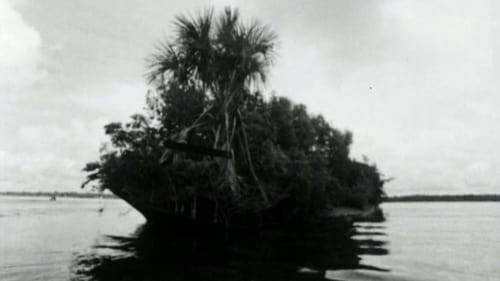
Director
Léon G. Damas (1912–1978) was the first poet to “live Négritude”, according to the Senegalese poet, politician and cultural theorist Léopold Sédar Senghor. Cosmopolitan and always in transit, his writing is a chorus of melodies and imagery imbued with angst and melancholy and strongly influenced by jazz and blues. Punctuated by images of the landscapes of French Guiana and the voice of the artist, the film exemplifies the poetic documentary form to which Maldoror frequently returned.

Director
An adaptation of Les A.M.I. du Tassili by the Algerian Akli Tadjer about Algerian immigration in France.

Director
Aimé Césaire - Le Masque des mots is a portrait of the Martinican writer who calls himself a rebellious negro and for whom the poetic act represents an act of freedom.

Director

Director
„Sarah Maldoror […] is respectfully regarded as the matriarch of African cinema (she was the first woman of color to make a feature film). For her, filmmaking was a weapon for struggle and liberation from the very beginning of her experiences in cinema.“ (African Film Festival New York, Biograpy Sarah Maldoror) Her film Toto Bissainthe portraits the Haitian singer and actress of the same name. Along with the likes of Samb Makharam or Timité Bassori, Maldoror and Bissainthe were part of the 60’s ensemble of renowned theatre group „Les Griots“.

Writer
A story of political imprisonment set in a mental hospital where the Stalin state police placed whoever their opponents were.

Director
A story of political imprisonment set in a mental hospital where the Stalin state police placed whoever their opponents were.

Director
Bokolo and Mamadou, sweepers in the city of Paris, are looking for a way to pay for the return home of one of their sick comrades. When they find an old book of recipes in the trash, they discover a passion for French cuisine and decide to participate in a televised cooking competition.

Director
Documentary short that explores the meaning of the locals’ African identity through the Carnival festivities.

Director
Short piece for the TV series Aujourd'hui en France [Today in France]. The review of an exhibition by Miró at the Maeght Foundation offers the opportunity to approach the surrealist artist from the filmmaker's central themes: the theatre, the interrelationship between the arts and the transformation of the childhood experience through art. The ensemble is like a work by Joan Miró translated into real life. This is its first screening after its television premiere in 1980. Translated with www.DeepL.com/Translator (free version)

Director
Sarah Maldoror uses Carnival as her approach to the history of colonization and black culture.

Director
Documentary about Cape Verde and the island of Fogo produced by the revolutionary government of the new country. A culture learning to live without tutelage.

Director
There is a gap separating the surrealism from the Interwar period and that of the post-war era, and that is the way this movement would understand racial difference. At first, the other or "primitive" was the opposite of the bourgeois subject. In this documentary, Sarah Maldoror interviews one of the most influential surrealist poets from the former surrealism, while at the same time we witness the movement's anachronist views regarding the affirmation of other identities.

Director
Documentary on the négritude movement through one of its founders, Aimé Césaire.
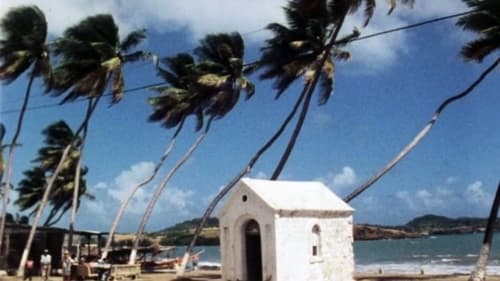
Writer
A film by Sarah Maldoror

Self
A film by Sarah Maldoror

Director
A film by Sarah Maldoror
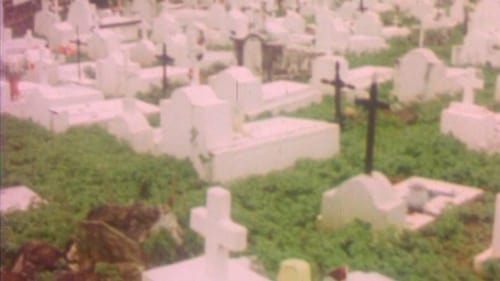
For 'Et les chiens se taisaient' Maldoror adapted a piece of theatre by the poet and politician Aimé Césaire (1913–2008), about a rebel who becomes profoundly aware of his otherness when condemned to death. His existential dialogue with his mother reverberates around the African sculptures on display at the Musée de l'Homme, a Parisian museum full of colonial plunder whose director was the Surrealist anthropologist Michel Leiris.

Director
For 'Et les chiens se taisaient' Maldoror adapted a piece of theatre by the poet and politician Aimé Césaire (1913–2008), about a rebel who becomes profoundly aware of his otherness when condemned to death. His existential dialogue with his mother reverberates around the African sculptures on display at the Musée de l'Homme, a Parisian museum full of colonial plunder whose director was the Surrealist anthropologist Michel Leiris.
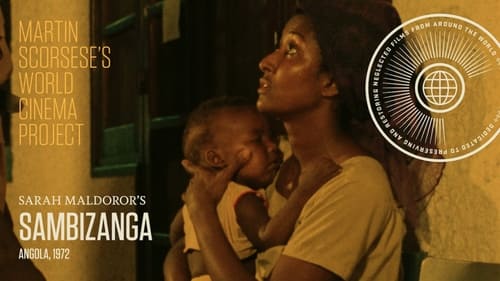
Script
Domingos is a member of an African liberation movement, arrested by the Portuguese secret police, after bloody events in Angola. His wife goes from a prison station to another, trying in vain to find out where he is.

Director
Domingos is a member of an African liberation movement, arrested by the Portuguese secret police, after bloody events in Angola. His wife goes from a prison station to another, trying in vain to find out where he is.

Director
Guns for Banta is the first feature-length film by Sarah Maldoror. Shot in Guinea-Bissau, Guns for Banta follows the life and untimely death of Awa, a countrywoman involved in the African Party for the Independence of Guinea and Cape Verde (PAIGC).
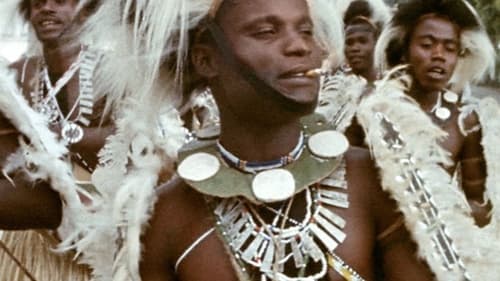
Assistant Director
Festival panafricain d'Alger is a documentary by William Klein of the music and dance festival held 40 years ago in the streets and in venues all across Algiers. Klein follows the preparations, the rehearsals, the concerts… He blends images of interviews made to writers and advocates of the freedom movements with stock images, thus allowing him to touch on such matters as colonialism, neocolonialism, colonial exploitation, the struggles and battles of the revolutionary movements for Independence.

Writer
“Monangambeee” was a rallying cry used by activists during Angola’s anti-colonial liberation struggle to gather villages together. The film of the same title addresses Portuguese arrogance towards Angolan culture. Sarah Maldoror draws on a novella by José Luandino Vieira, the story of a political prisoner, to make a film about humiliation, solidarity and resistance.

Director
“Monangambeee” was a rallying cry used by activists during Angola’s anti-colonial liberation struggle to gather villages together. The film of the same title addresses Portuguese arrogance towards Angolan culture. Sarah Maldoror draws on a novella by José Luandino Vieira, the story of a political prisoner, to make a film about humiliation, solidarity and resistance.
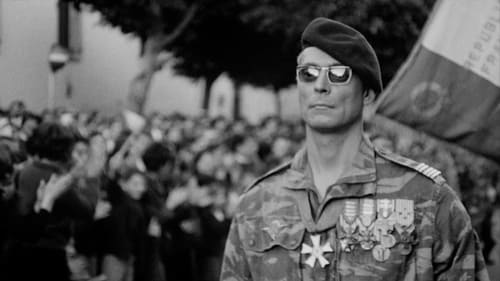
Assistant Director
Tracing the struggle of the Algerian Front de Liberation Nationale to gain freedom from French colonial rule as seen through the eyes of Ali from his start as a petty thief to his rise to prominence in the organisation and capture by the French in 1957. The film traces the rebels' struggle and the increasingly extreme measures taken by the French government to quell the revolt.

Assistant Director
Documentary dialogue with young women in Algiers on their experience of independence shortly after their country's independence.

